Across the country, progressive district attorneys are experimenting with strategies aimed at slowing the growth of the nation’s prison population. According to a 2018 report by the nonprofit Fair and Just Prosecution (an organization of newly elected prosecutors), incarceration rates have quintupled over the last four decades, with roughly 2.2 million prisoners now behind bars and an estimated 10.6 million people cycling in and out of jail each year. People of color make up a disproportionate number of inmates.
Restorative justice — a victim-led mediation that brings injured parties in direct contact with their offenders in an attempt to repair the harm caused by a crime — is one approach that many argue better serves individuals and communities than traditional punitive measures.
Yet in Asheville, a recent sentence employing the progressive approach has met with skepticism from many local residents. Growing anger over the disparate impact of police misconduct on people of color, the failure of the criminal justice system to hold officers accountable and a dearth of details about how the restorative justice process will work seem to lie at the heart of community concerns.
Brutal backdrop
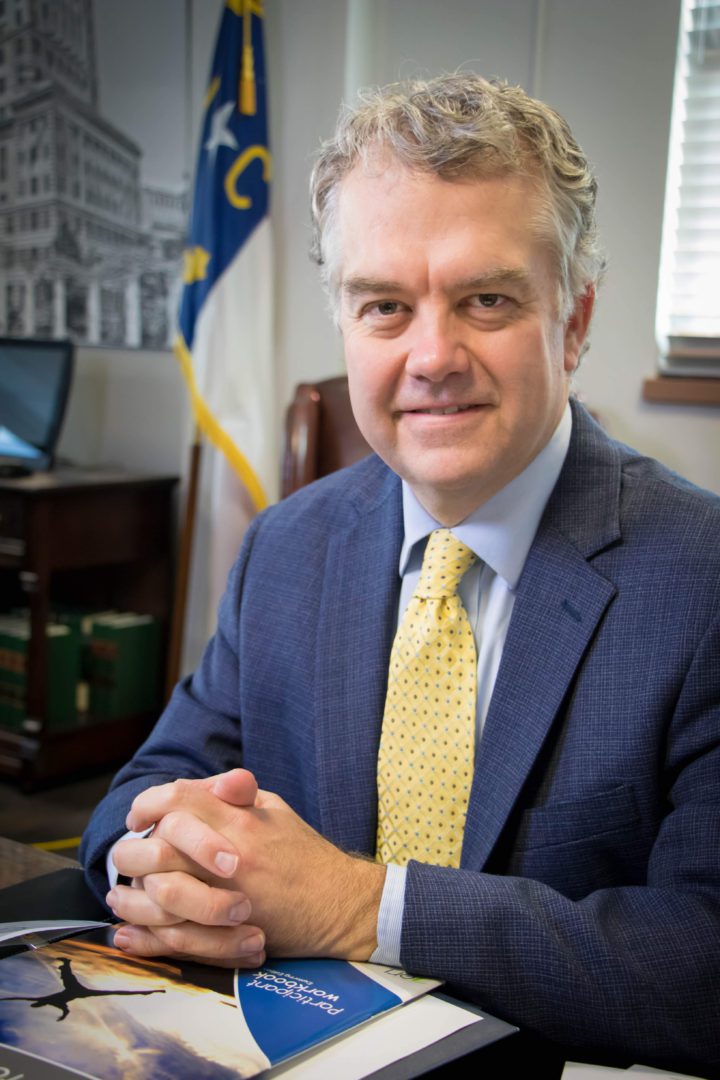
In an Aug. 9 plea deal, former Asheville Police Officer Christopher Hickman, who is white, pleaded guilty to the 2017 felony assault by strangulation of black resident Johnnie Rush, as well as two misdemeanor counts. Hickman received 12 months of supervised probation. Part of the deal also requires that the former officer continue participating in a local restorative justice program led by Jon Powell, director of the Restorative Justice Clinic at Campbell University, located 30 miles south of Raleigh.
Many community members see Hickman’s assault on Rush as part of a larger pattern of brutal encounters between black boys and men and police officers. The deaths of Eric Garner, 41, John Crawford III, 22, Tamir Rice, 12, and Philando Castile, 32, are among the high-profile cases that have captured national attention within the last five years. Like Rush’s beating, many of these instances were captured on film. In each of the named cases, none of the involved officers faced criminal charges.
For Buncombe County District Attorney Todd Williams, who brokered Hickman’s deal, the outcomes of those cases factored into his pursuit of the restorative justice plea deal. North America’s 400-year history of racial inequality, he notes, continues to this day, manifesting in ways that include excessive and deadly use of force by police. “We’ve had a real mixed bag in terms of the ability of the system to hold officers to account for their misdeeds,” he says.
Had the case gone to trial, Williams believes the defense would have asked the judge to move the trial to a different location in light of the extensive media coverage of the incident. “And a motion to change venue in North Carolina doesn’t mean you get to go from Asheville to another similarly situated community like Charlotte or Winston-Salem,” the DA explains. Rather, the case would have gone to a neighboring county with a more conservative jury pool, reducing the likelihood of a conviction.
Time will tell
When it comes to the criminal justice system, Buncombe County Commissioner Al Whitesides says he supports the restorative justice approach — but only “if it’s done in the right way,” and applied to the right cases, he clarifies.
Whitesides, Buncombe County’s first African American commissioner, considers the Hickman deal a misstep. “When you look at the history … and what’s going on today with policing in the African American community, I think it sends out a bad signal,” the commissioner says. Especially, Whitesides continues, “when you can have black men … getting years [in prison] for marijuana or a small amount of drugs. Let’s be fair about restorative justice.”
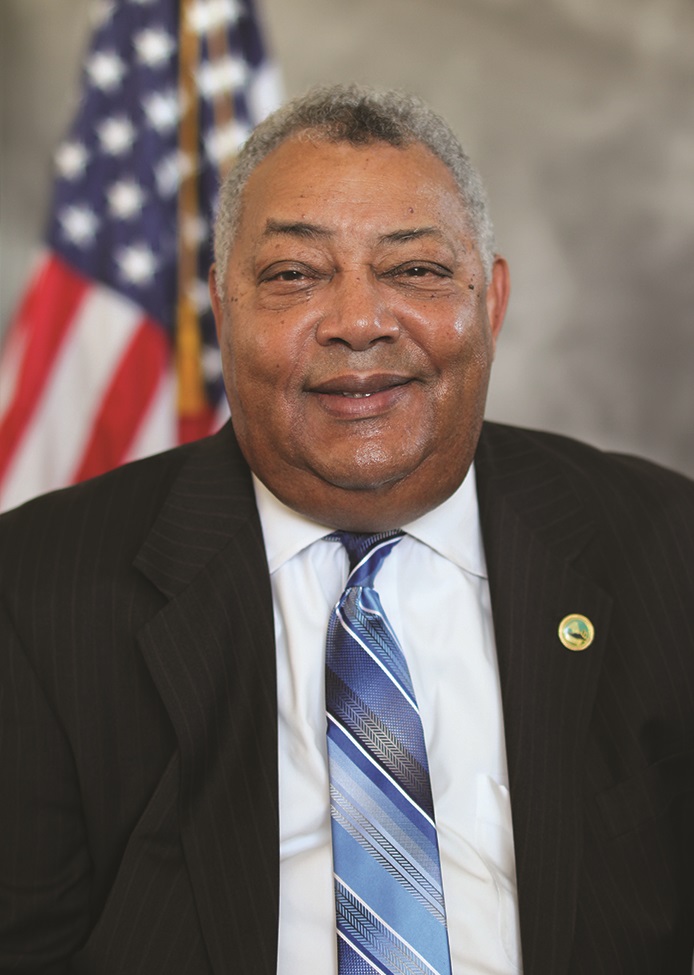
According to a 2019 report by the Pew Research Center, African Americans represented 12% of the country’s adult population but 33% of the sentenced prison population in 2017. Whites, on the other hand, accounted for 64% of the adult population but 30% of the prison population. Meanwhile, the report notes, Hispanics made up 16% of the adult population but accounted for 23% of total inmates.
Those disparities, along with the history of police misconduct, are a red flag for community members, Whitesides says. Many residents see the restorative justice approach “as another way of protecting the policeman,” he says.
Those involved in Hickman’s plea say that while they understand the criticism surrounding the deal, they view it as a way to implement the model in future cases.
“It’s a start,” says James Ferguson, an Asheville native and prominent civil rights attorney who represented Rush. “My hope is we’ll see more and more opportunities in the criminal justice system and in the community as a whole to put into place the principle and concept of restorative justice so that ultimately we can move steadily toward a criminal justice system that is based on more than just punishment as an end in and of itself.”
But Whitesides — who notes his long-standing friendship with and respect for Ferguson — remains skeptical. Too many questions surround the plea deal, he says. For example, what will the restorative program look like for this case? Who will oversee Powell’s efforts? And how much can be achieved within Hickman’s 12-month probationary period?
Neither Powell nor Williams could provide a definitive outline for the yearlong program. In part, that’s because much of the work depends on community participation, they say. With respect to the project’s supervision, Powell states he is “ultimately reporting to and being supervised by the court.” And as to whether the process will benefit the community — that remains an open question.
‘How?’
In late February 2018, the Citizen Times released leaked footage from Hickman’s body-worn camera, which captured from the officer’s perspective his pursuit, beating, choking and tasing of Rush in the early morning hours of Aug. 25, 2017. Community outrage ensued. Mayor Esther Manheimer publicly apologized to Rush on March 1, 2018. Six days later, residents expressed their anger and grief at a meeting of the city’s Citizens Police Advisory Committee.
Fallout from the incident touched many parts of city government. On July 10, 2018, Hickman was indicted. The following month, the city reached a $650,000 civil settlement with Rush. City officials’ mishandling of the case also factored into the firing of City Manager Gary Jackson and the resignation of Asheville Police Chief Tammy Hooper.
A month after the publication of the leaked video, the city of Asheville released nine official videos from six officers’ body cameras, totaling roughly 93 minutes of footage relevant to the incident. One of the shared videos captures a scene outside Mission Hospital, where Rush was taken for medical attention following the assault.
The 21-minute video includes a lengthy exchange between Hickman and Rush, as the two calmly discuss the beating while smoking a cigarette.
“No disrespect to you, sir, you know, I understand that I ran and whatnot, but you didn’t have to keep punching and choking me,” Rush tells the officer.
“Yeah, I did,” Hickman responds.
“How?” Rush asks.
“Because you never complied with my order,” the officer says.
“How, sir, when you already got me on the ground?” Rush inquires.
“You didn’t put your hands behind your back,” Hickman answers.
“How, when you choking me?” Rush presses.
“I didn’t start choking you till after I probably punched you 10 times,” Hickman answers.
Rush momentarily drops out of the frame, as he shakes his head and quietly laughs at Hickman’s response.
The conversation continues in this vein for several minutes.
Rush’s inquisitive nature and desire to understand Hickman’s actions, says Williams, factored into the district attorney’s decision to consider a restorative justice approach. In order to proceed, however, Williams needed Rush’s consent.
The promotion of understanding
According to both Williams and Ferguson, Rush — interested in an apology and a deeper understanding of why the beating occurred — was open to the restorative justice process. Rush’s agreement to pursue the novel approach, Williams underscores, predated the victim’s Jan. 28, 2019, drug-related charges, which are still pending.
As a result of Rush’s decision, he and Hickman (accompanied by their attorneys), participated in a victim-offender dialogue facilitated by Powell, on Sept. 7, 2018. According to Powell, a standard confidentiality agreement signed by the participants prevents those present other than Hickman and Rush from offering detailed accounts of the session.
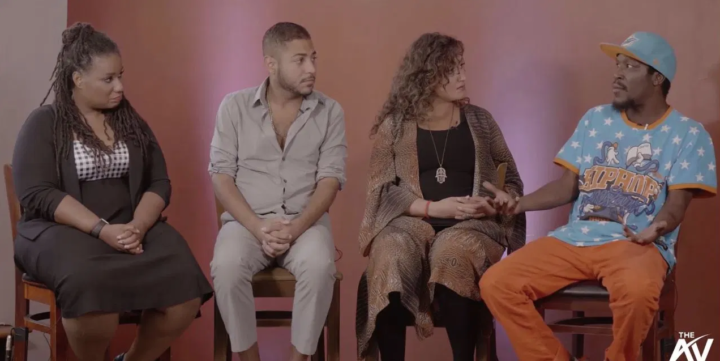
Xpress made several attempts to contact Rush for this article but was unable to reach him. On Sept. 14, “The Asheville View,” a local weekly online video talk show, aired an interview with Rush, who offered his first public comments since the Aug. 9 sentencing. In the episode, Rush expressed frustration with the plea deal, stating: “I didn’t like the outcome of that. [Hickman] should have been doing time right now.”
Invoking language reminiscent of the United States’ long history of racial terror, Rush later continued: “If it was me did that to him or anybody else … they would have probably charged me with attempted murder and everything else with that. … They would have probably tried hanging me.”
Individuals involved in the plea deal who spoke with Xpress did so prior to Rush’s Sept. 14 interview. In an email exchange following Rush’s public remarks, Williams writes that both he and Rush “understand it would have been satisfying to have Mr. Hickman serve time.” But after extensive conversation with both Rush and Ferguson, Williams continues, “It was decided and agreed upon by Mr. Rush that a path of restorative justice, which has only just begun, would be the most effective path for bringing resolution to him, most effective at confronting Hickman with the harm done by his actions, most effective for compelling change in future policing for Buncombe County.”
Further, Williams notes, “Mr. Rush was absolutely included in the process of deciding on Hickman’s sentencing. The DA’s office drafted the plea offer presented in the courtroom with both Mr. Rush and Hickman understanding the primary restitution process would be established outside of the courtroom.”
Neither Powell nor Ferguson responded to questions concerning Rush’s Sept. 14 statements.
In discussing the mediation, Powell says, “I did not feel that anything in that meeting was off-limits. … I felt like anything was open for question and I felt like there were honest answers given.”
Ferguson has a similar take. “I viewed [Hickman’s] answers as honest and candid,” he says. “And I viewed Mr. Rush’s response to those answers as honest and candid.”
By meeting’s end, Ferguson says, his client received the apology that he wanted. Whether or not Rush forgives Hickman is irrelevant, he adds.
“We hope as individuals that we can all learn to forgive as we understand,” Ferguson explains. “But to me, forgiveness is not necessarily the goal. … The promotion of understanding and the pursuit of a resolution that involves something other than punishment for the sake of punishment is part of the goal.”
A difficult sell

The way Powell sees it, the main issue with the restorative justice approach is that so few people understand it. At the same time, his explanations for Hickman’s plea deal and its expected outcomes leave many questions unanswered.
“We have a traditional legal process that basically asks, ‘What law was broken? Who did it? And what does that person deserve?’” explains Powell. “That’s what we’re used to. It’s a retributive system. It’s an adversarial system.”
On the other hand, Powell continues, “Restorative justice asks three very different questions: ‘Who has been hurt? How have they been hurt? And who has an obligation to do something about that?’”
For his part, Williams cites a June 29, 2016, article written by Vann R. Newkirk II and published in The Atlantic as a major influence on the plea deal. The piece, “An Alternative to the Madness of Proving Police Injustice,” considers the potential for restorative justice to address what courts rarely do: police killings and their impact on communities. The article ran shortly after Baltimore police officer Caesar Goodson Jr. was acquitted of all charges related to the death of Freddie Gray, a 25-year-old black man who died from injuries sustained as Baltimore police transported him in a van. Five additional officers were involved in the case; none faced criminal charges.
Among many other questions, the article asks: “What precisely does the legal concept of murder mean for an agent empowered to kill people?” Despite the ubiquity of video footage, Newkirk writes, “the overwhelming tolerance of police violence has still not been cracked by convictions, much less overturned.”
Later in the piece, Newkirk speculates on the potential positive impact that restorative justice might bring to communities. “The lack of the prospect of a long prison sentence would lower the stakes and reduce the adversarial nature of dialogue between community and police,” Newkirk writes. “That might make police more willing to root out problems in their ranks, instead of resorting to obstruction and grandstanding.”
At the same time, Newkirk acknowledges that the history of police brutality, especially within communities of color, makes the approach a difficult sell.
Confronting complexity
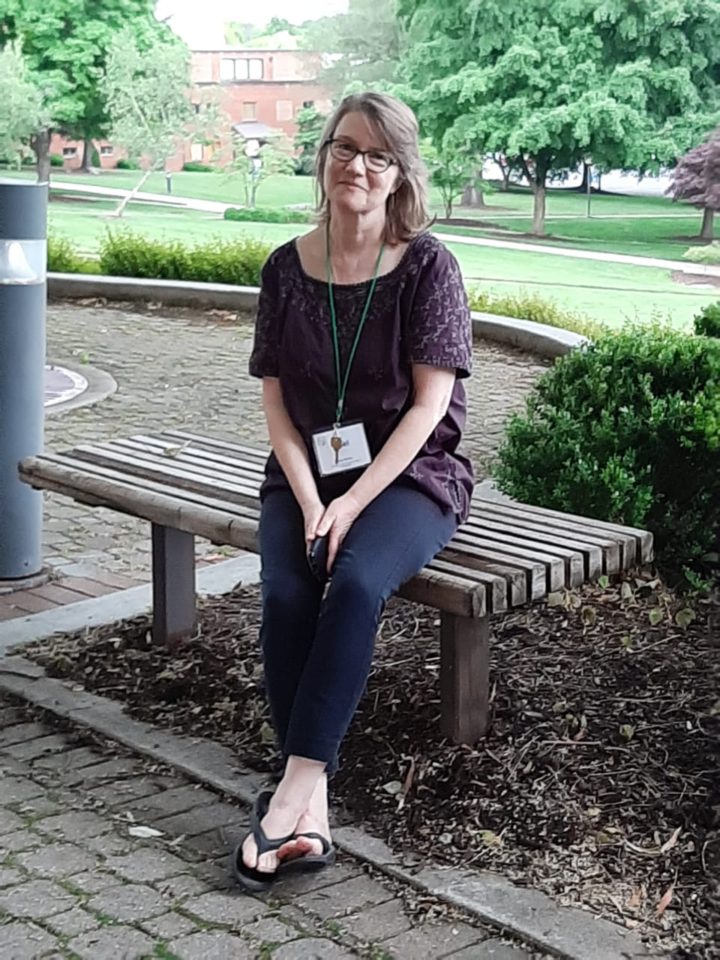
That is certainly the case in Asheville. According to Noel Nickle, a local licensed clinical social worker who will assist Powell on a limited basis over the project’s next 12 months, a major hurdle for Hickman’s restorative justice plea to overcome is the overall damage inflicted.
“Mr. Rush is not the only one who is harmed,” she says, pointing to the larger Asheville community, which is still grappling with the beating, as well as the controversial plea deal.
Meanwhile, Nickle continues, “Mr. Hickman is not the only one or the only system, so to speak, for which we need to seek accountability.” She states that excessive use of force and implicit bias “are symptomatic of white supremacy culture.” As residents join in the restorative process, Nickle believes larger issues, including policing practices as well as inequities in the justice system, will be addressed.
Community-minded thinking will guide the next 12 months, according to Powell. “One thing that I would like for folks to understand is that this process is not over,” he says. “One thing that I will be doing … is reaching out to the community to hear from them and to try and understand what harm they have experienced and how they best think that that harm can be addressed. That is the piece that has yet to be accomplished.”
Future plans, says Powell, will include one-on-one sessions with residents, as well as possible community forums. According to the restorative justice expert, there is also a good chance that Hickman will address the Asheville Police Department, discussing his behavior on the evening of Aug. 25, 2017, and its consequences. In addition, Powell notes, meetings between Hickman and members of Rush’s family could take place.
Whether or not Rush participates in subsequent sessions is up to him as the victim in the assault, Powell explains. Over the next 12 months, Hickman also holds the right to refuse participation. However, Powell stresses, if the former officer chooses that route, he risks violating his probation.
Growth and change
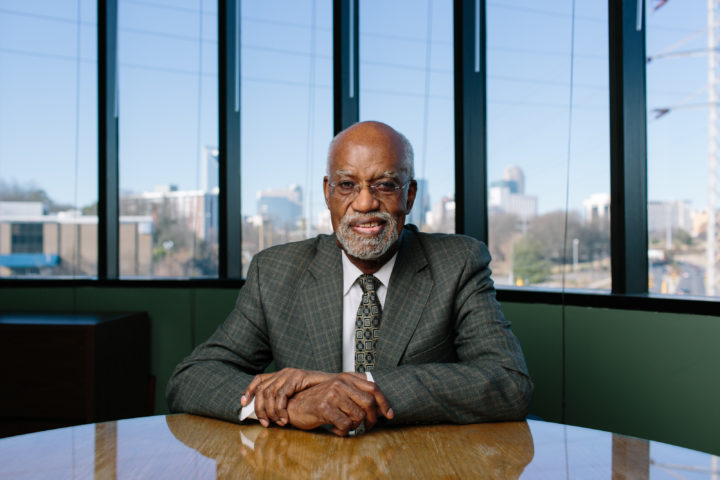
At present, exact details outlining Hickman’s restorative justice plea deal remain aspirational at best. No one involved in the process argues otherwise. Nor do they present the resolution as a fix-all.
“Whatever the next particular steps are, they are not going to address all of the fundamental root causes of excessive use of force and police brutality,” says Nickle. “Our community has a lot of work to do together. This process alone will not get us there all the way.”
But it’s a step in the right direction, says Ferguson. “Unless we can move toward a system that moves beyond punishment, we don’t progress much as a community and we find ourselves going around and around on the same merry-go-round,” he says. “I think the restorative justice process offers an opportunity for us to grow as individuals. … I think the main two participants will tell you that there has been growth. I think there is still great opportunity for the community to grow.”
Further, the civil rights attorney continues, “One of the things I hope to see come out of this is that we begin to look at conflict resolution in our community when it comes to community-police relations — that conflict can be addressed in ways that allow opportunities for greater understanding. … I know all of that sounds idealistic, and to some extent it is, but we don’t ever move forward unless we embrace and pursue change.”


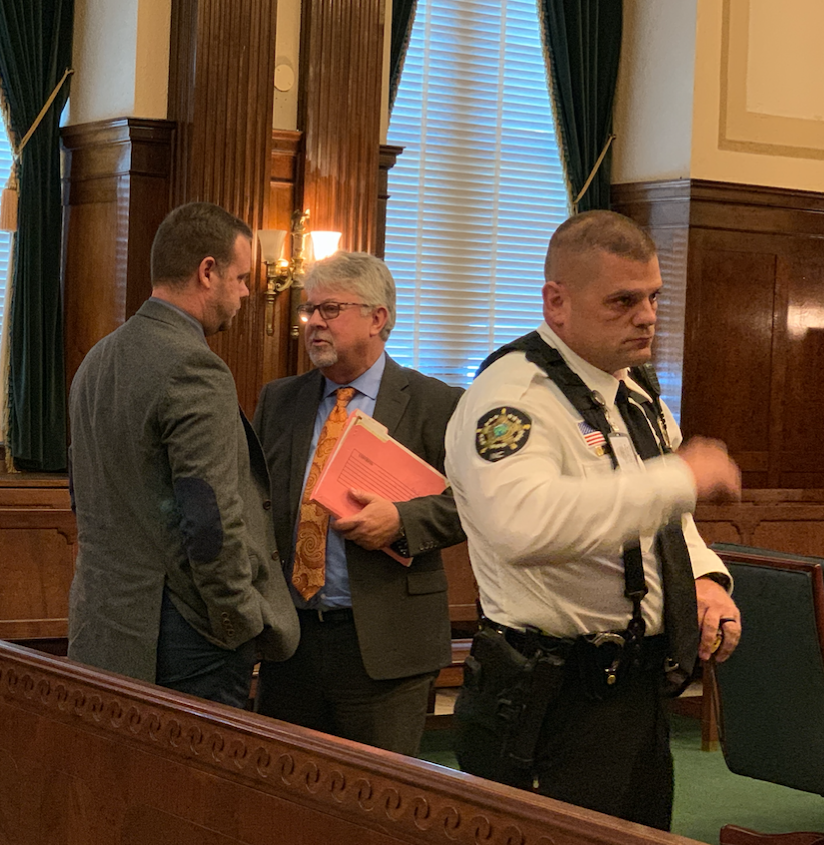
Thanks for citing the work of Vann Newkirk II.
https://www.theatlantic.com/politics/archive/2017/04/voting-rights-at-large-voting-louisiana/524691/
Thanks to Mr Calder and MX for this thorough and thoughtful review/analysis of this complicated matter.
I’ve thought about this approach toward justice before. First of all, i admit that I don’t know how this would work, but the notion that punishing an offender by keeping them in captivity as an efficient means of justice is absurd. Direct restitution toward a victim of a crime makes sense to me. Let the offender work off his sentence by serving their victim. Kind of a legal form of indentured servitude until full restitution is achieved. The cost of administering some sort of program like this would be less than warehousing millions of people who’s lives are being wasted to no benefit of their victims. There are lots of potential problems that would need to be addressed to make something like this work, but the idea should be studied.